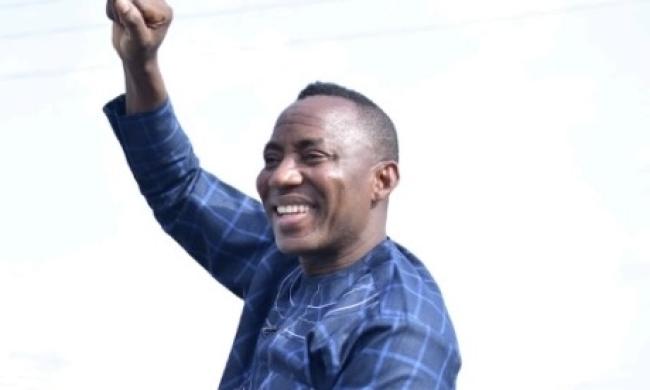
Omoyele Sowore, the publisher of Chronicles Reporters, has accused the Nigerian Police Force of harassment and intimidation in an incident that has ignited widespread debate on social media. This situation underscores pressing concerns about abuse of power, legal boundaries, and accountability within public institutions.
The controversy began with a recorded encounter between Sowore and police officers near Lagos’ Murtala Muhammed International Airport. In the video, Sowore accused the officers of setting up what he described as an illegal roadblock for extortion purposes.
When the officers asked him to park his vehicle, Sowore refused and questioned their actions, saying, “We are not parking. You people should calm down.” An officer approached the passenger side, instructing him to park. Sowore stood his ground, demanding to speak to a senior officer, stating, “Go and bring your oga.”
Eventually, one officer allowed him to continue, but not before the tension escalated. According to reports, one officer allegedly retorted with, “God punish you,” to which Sowore replied, “God punish you too.” Although the encounter did not turn violent, it has sparked serious ethical and legal debates about law enforcement conduct and citizens’ rights.
The Nigerian Police Force has since accused Sowore of various offenses. However, questions have been raised about the credibility of these allegations, especially in light of the video evidence circulating online. The footage appears to show Sowore asserting his rights without physically or verbally obstructing the officers.
The concept of harassment and intimidation, often intertwined in legal contexts, involves creating a hostile environment to achieve specific objectives. Allegations of an “illegal roadblock” and subsequent charges against Sowore point to potential violations of due process and abuse of power.
Legally, accusations of resisting or obstructing law enforcement require concrete evidence of actions deliberately aimed at hindering lawful duties. In this case, Sowore’s recorded questioning of the officers seems to fall within his constitutional right to freedom of expression. Similarly, allegations of cyberstalking, which involve using digital platforms for harassment, appear misplaced in the context of this encounter.
Sowore has also alleged that the Inspector General of Police (IGP), Kayode Egbetokun, harbors a personal vendetta against him. This claim stems from Sowore’s repeated labeling of the IGP as “illegal” following the extension of his tenure beyond the statutory retirement age. Sowore further alleged that Egbetokun had informed senior officers of plans to “deal” with him, raising concerns about the potential misuse of institutional power for personal grievances.
If these allegations are true, they represent a significant breach of impartiality and professionalism expected of law enforcement in a democratic society. The incident calls for a transparent investigation to clarify the actions of both parties. Law enforcement must adhere to constitutional principles and protect citizens’ rights, even in contentious situations. Likewise, citizens should engage with officers respectfully while exercising their rights.
To rebuild public trust, the Nigeria Police Force must demonstrate accountability, professionalism, and ethical conduct. Any perception of bias or abuse of authority undermines public confidence in law enforcement.
Omoyele Sowore’s experience serves as a critical reminder of the delicate balance between authority and accountability in governance. As this investigation progresses, both Nigerians and the international community will be watching closely, expecting justice and transparency to prevail.
For more updates, follow Chronicles Reporters on our WhatsApp channel: https://whatsapp.com/channel/0029VabITrvEAKW7DSkTfP0J.